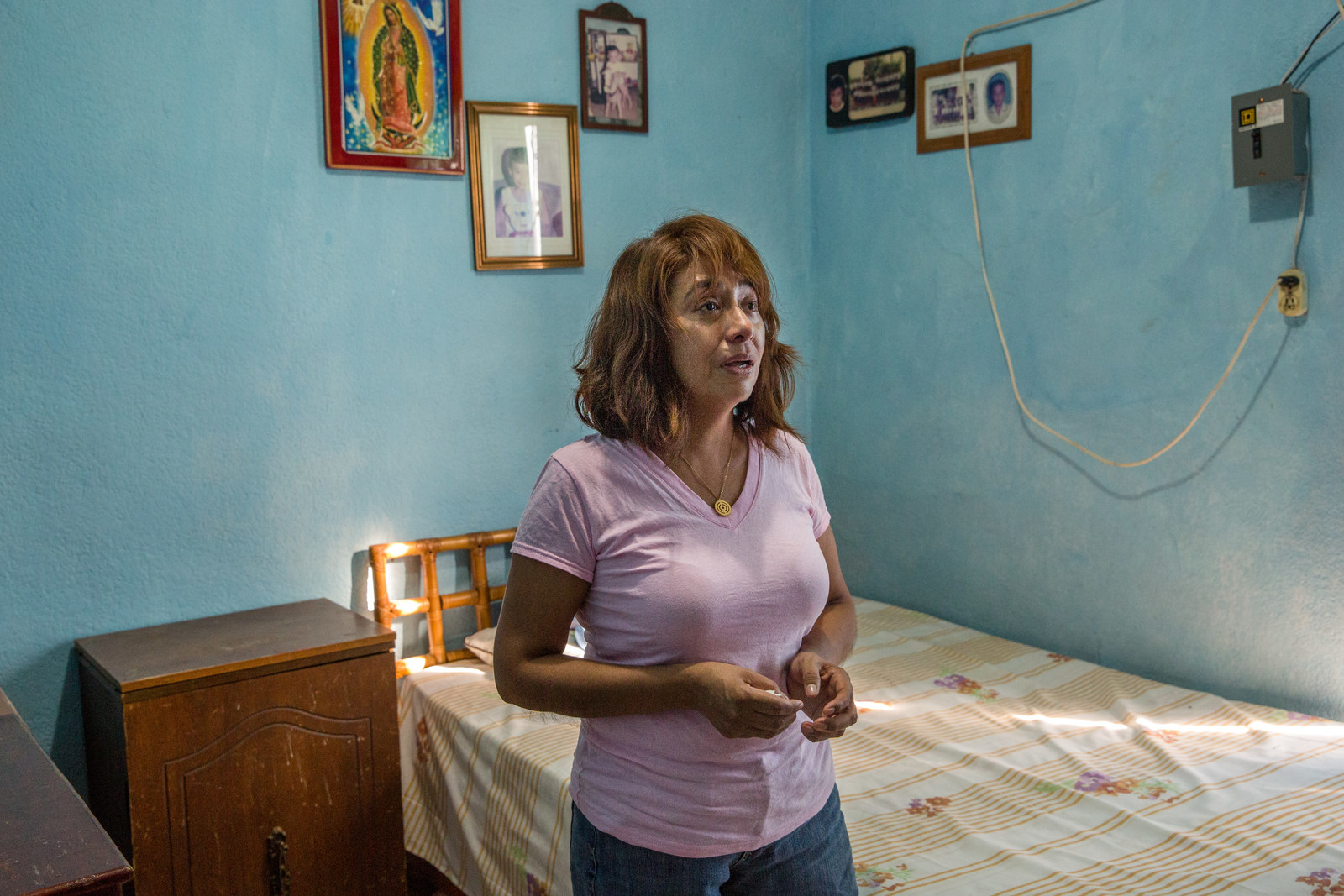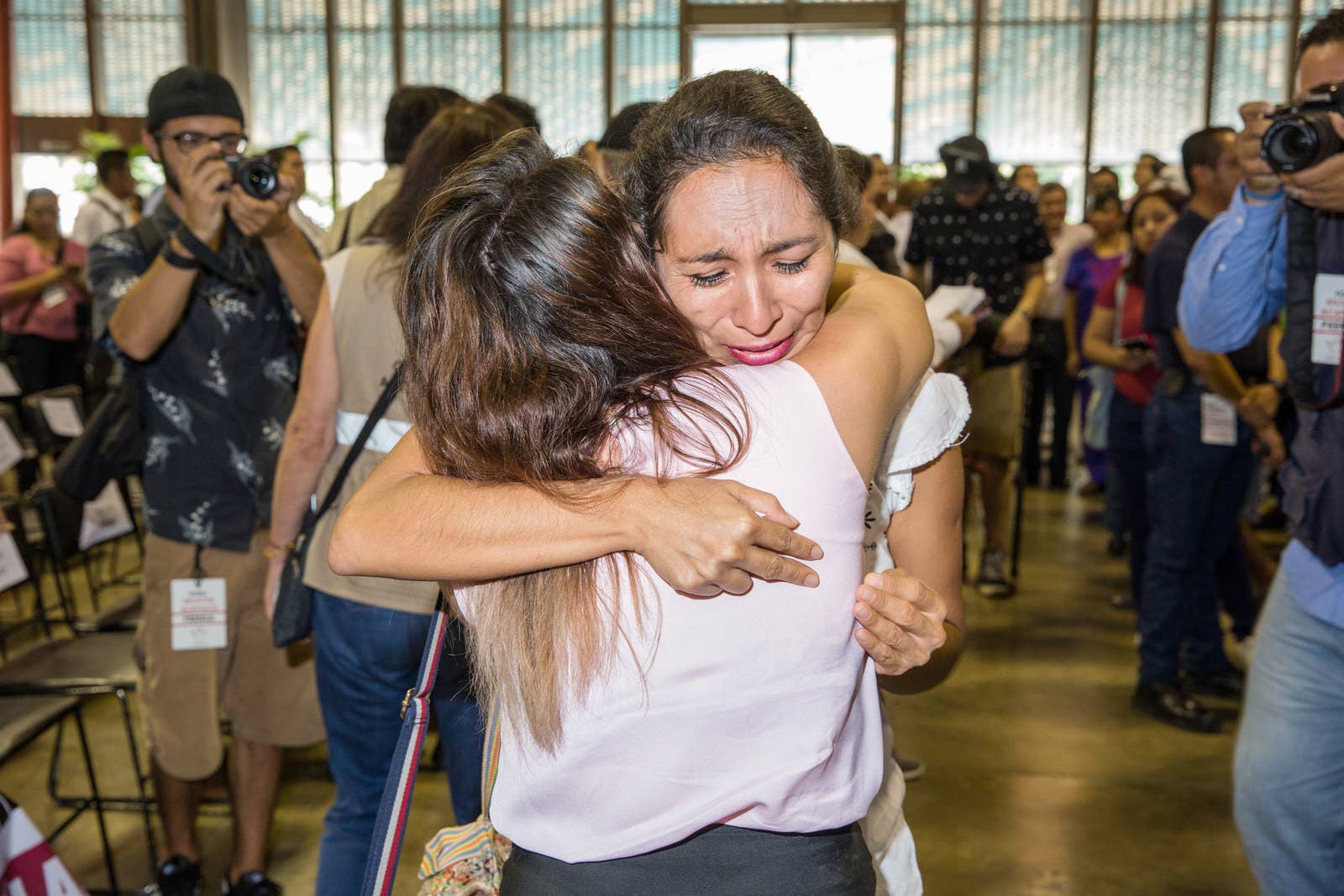
ACAPULCO — The hundreds of people crammed into a dreary convention center in Acapulco watched as José Díaz Navarro rushed onto the stage and recounted the horror his family had been through. Over seven minutes, he described how a group of criminals had cut off his brothers’ hands, decapitated them, and burned their bodies.
“The roads of our town are being paved with the blood and bodies and heads of children, of the elderly, of entire families,” Díaz Navarro, a public school teacher, told the crowd in Guerrero, one of the states hardest hit by the drug war that has raged in Mexico for 12 years and left more than 150,000 people dead, and through which tens of thousands more have disappeared.
“The roads of our town are being paved with the blood and bodies and heads of children, of the elderly, of entire families.”
Now, a new president, Andrés Manuel López Obrador, who is due to take office in December, is hoping to adopt a radically different security policy that breaks with the hardline, militarized approach of his last two predecessors.
López Obrador wants to “pacify” the country by placing victims of the drug war center stage and granting amnesty to certain criminals. Other measures include decriminalizing marijuana and poppy production, targeting criminals’ financial structures and expanding education and job opportunities for young people. He even wants to replace the Secret Service unit that has protected former presidents with an untrained, unarmed group of 20 men and women.
As part of that strategy, his incoming administration is holding town hall–style meetings like the one Díaz Navarro attended, called “Listen Forums,” bringing together victims and policymakers where they hope to get a deep understanding of what the most pressing problems are and collect ideas on how to fix them.
But security experts are skeptical about this strategy, based on love, redemption, and reconciliation — “Hugs, not bullets” — and say it lacks consistency, technical expertise, and a firm grasp on the country’s complex reality.
“They’re verbal spasms,” said Edgardo Buscaglia, a senior research scholar at Columbia University. “It’s improvisation and a political show.”
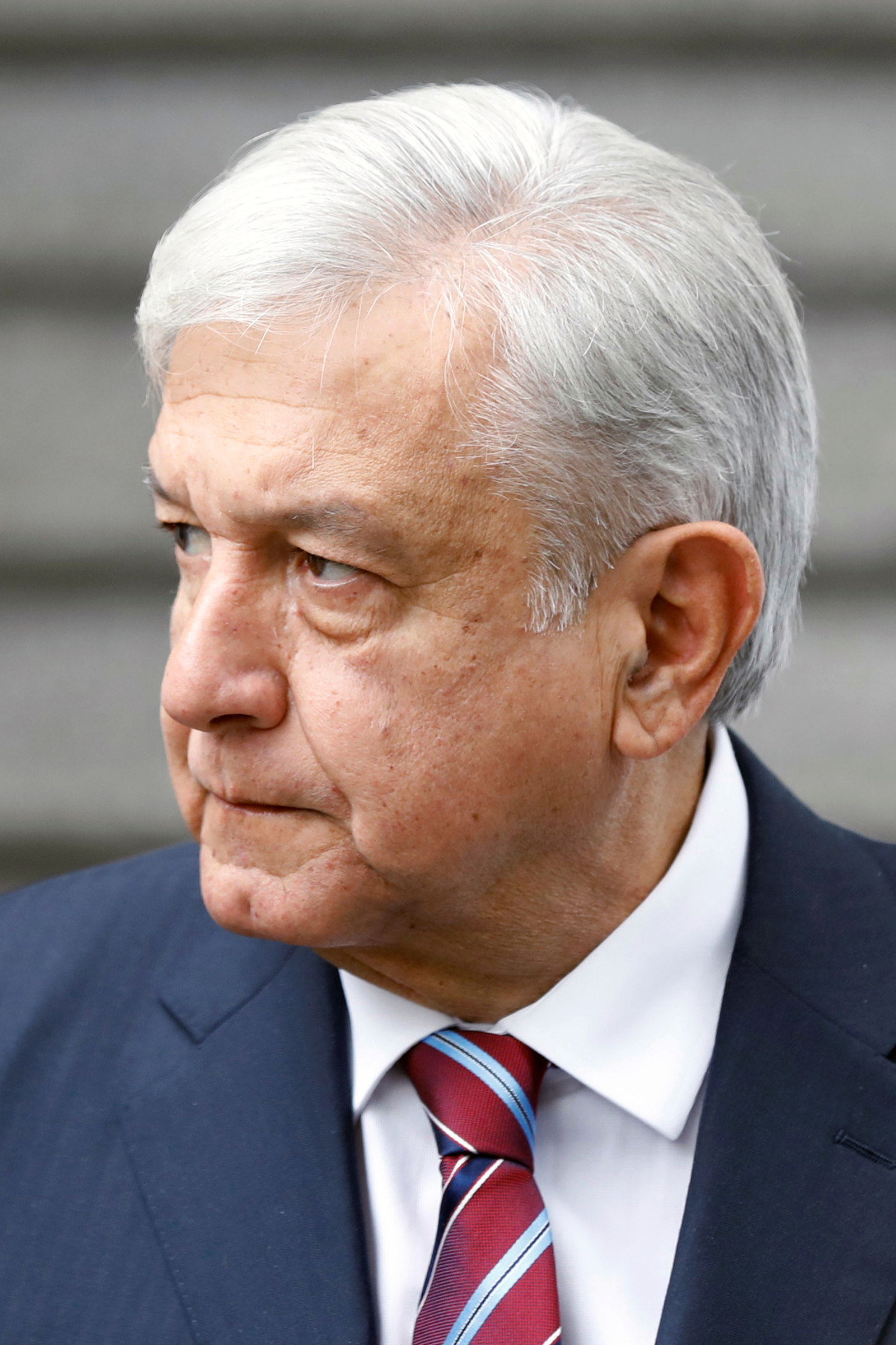
Under López Obrador, “there won’t be a big difference in the everyday operation,” said Alejandro Hope, a security analyst. “This pacification idea is going to lead to disillusionment because nothing they are proposing has a causal relationship with homicides.”
While the Listen Forums — more than 40 of which are taking place across Mexico, and even abroad in Phoenix, Arizona — are aimed at being cathartic, they are also chaotic and possibly dangerous, a microcosm of López Obrador’s security plan as it currently exists.
When Díaz Navarro, the teacher, stood in front of the crowd in the port city of Acapulco, he accused specific members of the brutal local cartel Los Ardillos and a self-defense group of carrying out his family’s murders.
Hundreds of fellow victims of crime in Guerrero, many of whom had signed up for the event online, looked back at him knowingly. But among them, Díaz Navarro discovered, was the leader of one of the state’s largest self-defense groups, like the one that he had just accused of killing his brothers, staring at him menacingly.
No one seemed to notice him.
Díaz Navarro grew anxious as the conference dragged on. While standing over a urinal near the breakout session meeting rooms, he kept his neck craned toward the door, afraid a knife-wielding man would walk in and attack him.
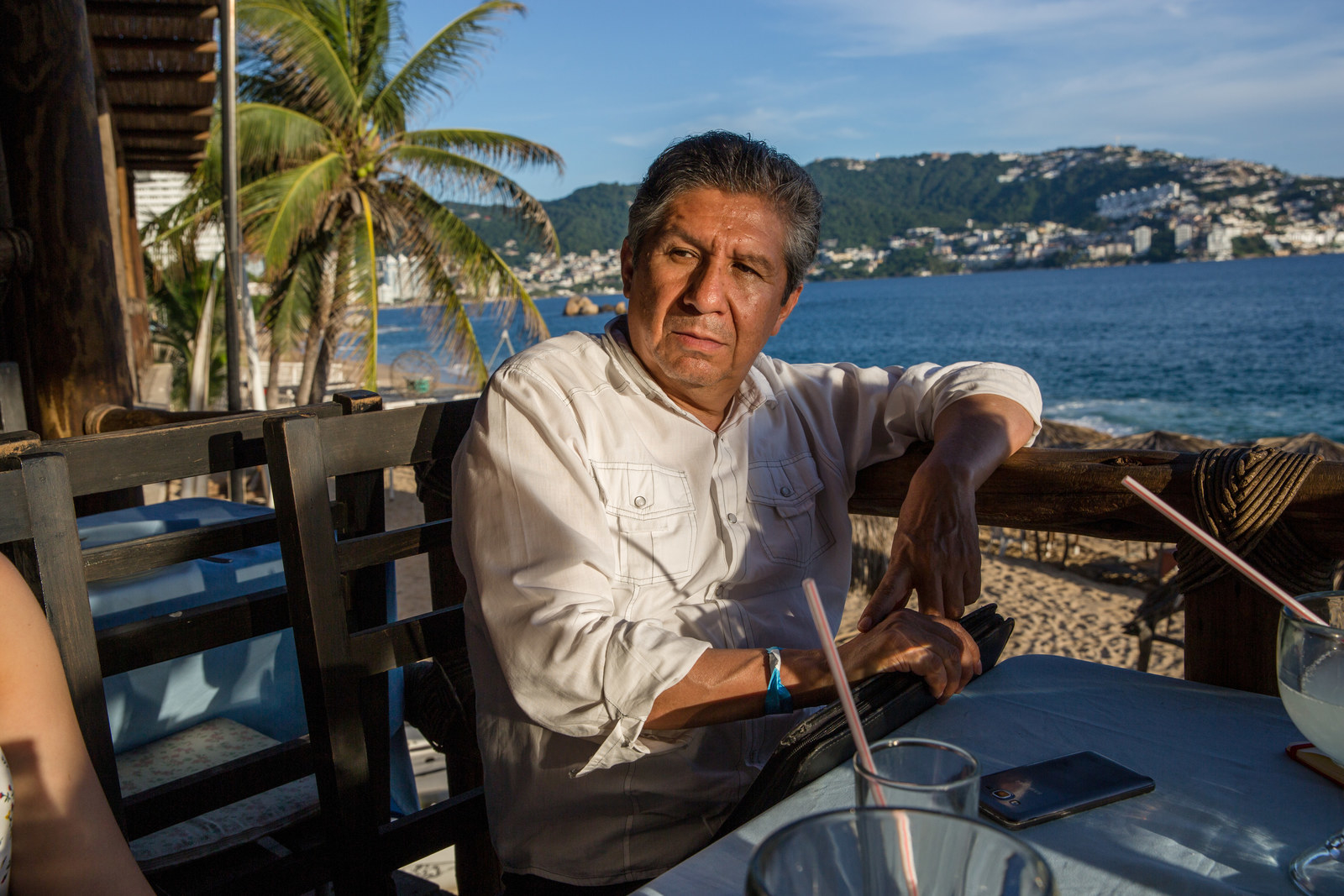
López Obrador won in a historic landslide this summer, taking a majority of both houses of Congress and several governorships. His victory was seen as much as a repudiation of the ruling party — with its seemingly endless stream of corruption scandals — as it was a new hope for a country hungry for a different, untested course.
Since his triumph, López Obrador has appeared in public regularly, taking over the space increasingly abandoned by outgoing President Enrique Peña Nieto. (With record homicide rates, dismal approval ratings, and the near evisceration of his party during the recent elections, Peña Nieto has quietly retreated into obscurity even with three months to go in his presidency.)
But the euphoria that accompanied López Obrador’s election has given way to confusion and disillusionment. Few believe the peace talks, which include the Listen Forums, have been more than a temporary venting space.
“The conversations there are all over the place,” said Lisa Sánchez, director of México Unido Contra la Delincuencia, a group focused on curbing crime. The meetings’ success will be based on how the information collected is systematized, she added.
“The conversations there are all over the place.”
At the peace talks in Morelia, Michoacán — one of the states most ravaged by drug war violence — participants jeered the state’s secretary of public safety out of the event. At a smaller forum in La Huacana, a highly volatile crime-ridden area of Michoacán, attendees were too afraid to talk, stealthily passing unsigned notes to organizers instead.
While popular with voters, the president-elect’s security policies have been inconsistent.
Last December, López Obrador announced that he was considering giving amnesty to drug cartel leaders. The following month, his proposed public security minister, Alfonso Durazo, clarified that the amnesty would apply to impoverished farmers cornered into cultivating drugs and youth forced into crime because of a lack of economic opportunities — not kingpins.
Since then, López Obrador has repeatedly said that the amnesty would be based on the concept of “no to forgetting, yes to forgiving.” But on Aug. 7, Olga Sánchez Cordero, who will serve as minister of the interior under López Obrador, admitted to the Spanish news agency EFE that forgiving will be difficult for victims. She clarified that the president-elect meant forgiveness in an effort to heal one’s own wounds. The Listen Forums confirm this: Participants say they are offended by the idea of the government forgiving criminals.
Criticizing the “coercive” approach to the drug war, López Obrador, who comes into power Dec. 1, has said that the armed forces “did not resolve anything.” But last month, he announced that the army and navy would remain on the streets.
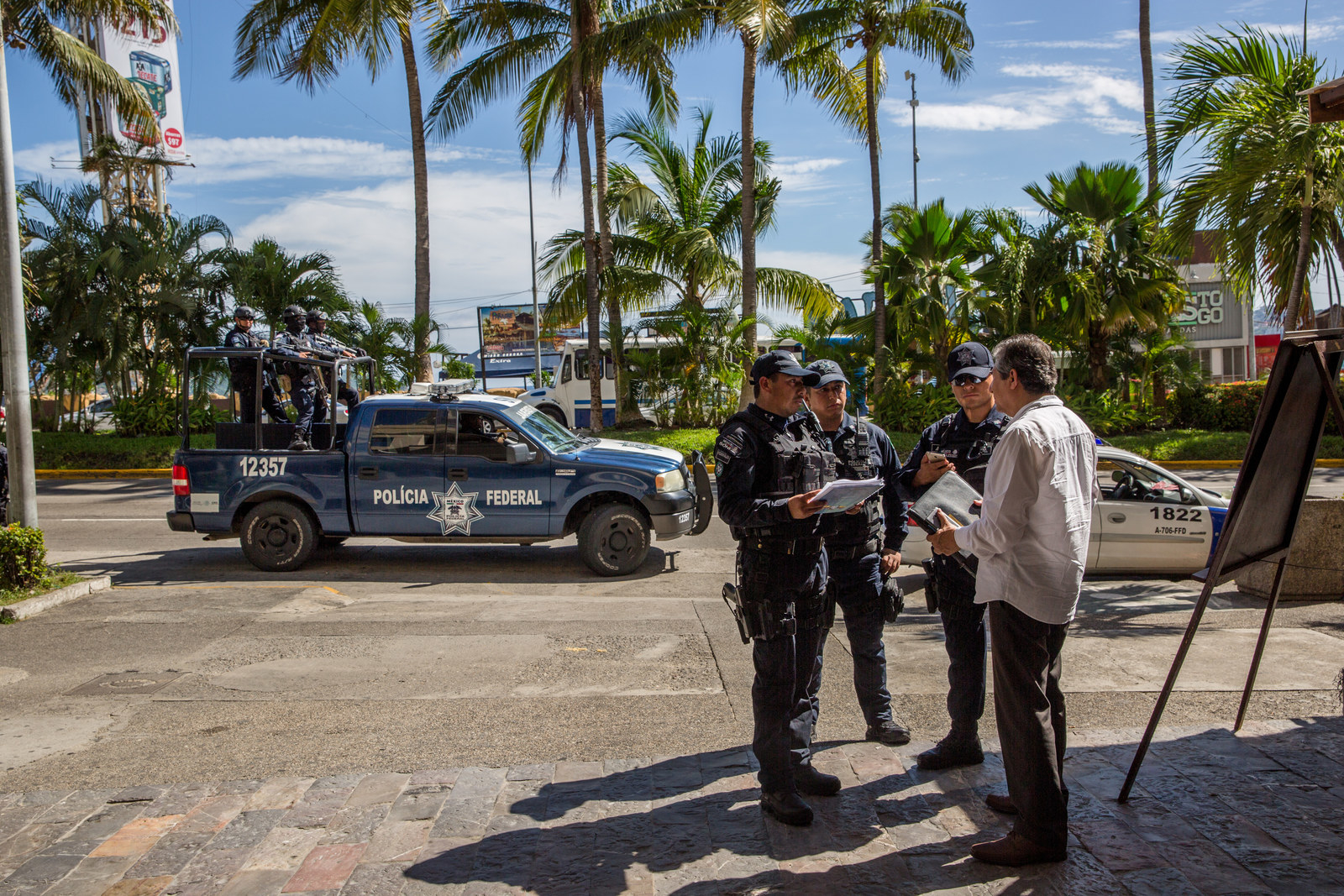
Surrounded by people taking selfies and munching on free sandwiches after the opening ceremony in Acapulco, Díaz Navarro was confused. Which of the four small meeting rooms should he go to for the thematic sessions?
Whichever is less crowded, organizers told him.
Later that evening, speaking from one of the restaurants on Acapulco’s main strip, as more than a dozen federal police stood guard outside, Díaz Navarro said he was surprised by the participants’ profiles at his roundtable: One was selling natural health supplements, another was asking for government housing. None were victims.
Suddenly, he realized he had not been in room “D,” the one specially designated for victims of crime, such as himself.
“How do we move forward without justice?”
After the cartel responsible for his brothers’ murders put a price on his head, the Mexican government added Díaz Navarro, who founded the victims coalition Always Alive, to its “mechanism for the protection of human rights defenders and journalists.” Díaz Navarro was forced to leave Guerrero, his birthplace and one of the states with the highest number of homicides, and move to the capital city.
Soft-spoken and eloquent, Díaz Navarro said he was disappointed with the morning’s meeting. The event seemed haphazardly put together and Durazo, the incoming public security minister, had been a no-show.
“I doubt something positive will come from [the event],” Díaz Navarro said, the sun setting behind him and casting a shadow on the documents he had taken out of his briefcase and laid out on the table: cellphone numbers and photographs of the cartel members who had taken his siblings, and a list of the last 30 or so geographic coordinates for the van his brothers were abducted in.
Asked how Mexico could move forward with reconciliation, Díaz Navarro didn’t miss a beat, “How do we move forward without justice?”
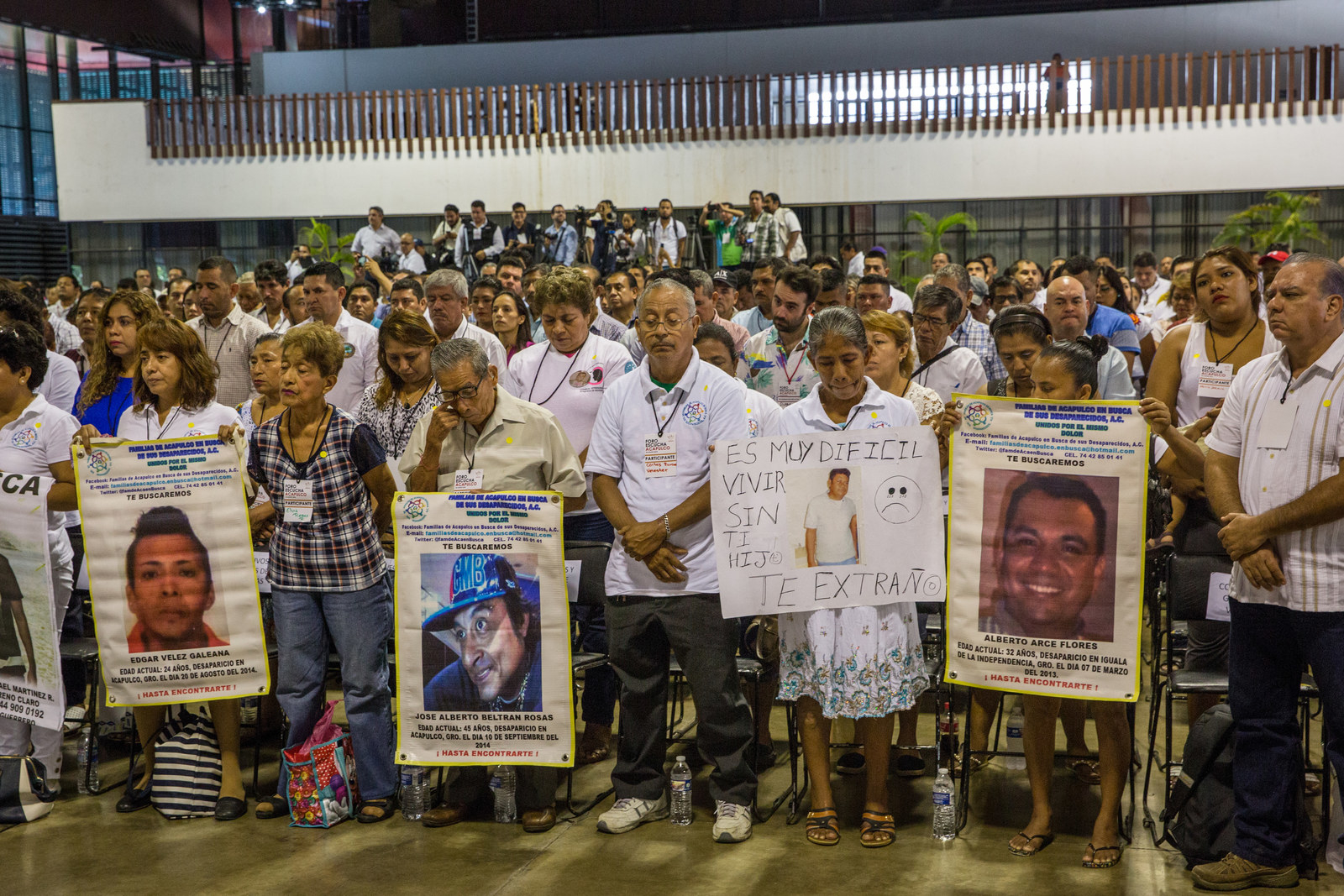
“Legalize production of some drugs.”
“Legalize consumption of some drugs.”
“Negotiate or talk with all actors, including those that committed crimes.”
“Free young people, women, and farmers who’ve committed minor crimes.”
The ideas floated in the survey handed out to participants during the afternoon breakaway sessions in Acapulco and central to López Obrador’s still-vague security strategy are likely to find opposition in the US government, which provides Mexico millions of dollars annually to fight crime.
“If there is no justice for the people, there should be no peace for the government!”
Depending on the details of the amnesty, criminals sought for extradition by the US but pardoned in Mexico would not be handed over, Loretta Ortíz, the coordinator of the peace process, told BuzzFeed News.
But even thornier than that might be drug regulation. With the US in the midst of an opioid crisis and President Donald Trump outspokenly critical of criminals who cross the border into the US, pushback against that plan could be significant.
A spokesperson at the State Department told BuzzFeed News that they are “engaging with the incoming administration now to better understand their priorities and how we can support them. Over the next several months, the US government will work with President-elect López Obrador and his cabinet to define those details.”
During an opioid summit hosted at the White House in March, officials noted that 90% of the US supply of heroin comes from Mexico and said that they were looking for new ways to disrupt its flow into the country. In July, Sánchez Cordero, slated to be the next interior minister, proposed decriminalizing poppy production.
“The Merida Initiative is going to be really discussed and reinvented,” said former US ambassador to Mexico Earl Anthony Wayne.
“It’s important that this cooperation gets better, not worse.”
The show-and-tell of horrors at Acapulco’s Listen Forum began tepidly on a recent Tuesday morning.
A group of people walked up to the stage with four banners displaying their missing relatives’ faces and hung them from the edge of the stage with water bottles, before taking their seats again. Watching them from the front-row seat was a gray-haired woman holding a handmade sign: “It’s so hard to live without you, son. I miss you.”
But the tense silence that followed soon gave way to guttural screams that reverberated across the high-ceilinged room.
“We want them back alive!”
“If there is no justice for the people, there should be no peace for the government!”
“1 … 2 … 35 … 42 … 43 … Justice!” in reference to the 43 students who went missing in Guerrero in 2014.
“The people who took my son? I want the death penalty for them.”
Romelia Galeana sat on the first row, holding a small poster with an enlarged photograph of her 22-year-old son, who went missing four years ago. She went to the event thinking she’d get a promise of support in her search but walked away frustrated. All the organizers wanted, she said, was to know if she would support an amnesty.
Galeana, a perfume salesperson at Sears, left the forum early — she had already asked for too many days off at work to go search for her son, Edgar, in hospitals, morgues, jails, and open fields.
She took a cab to the department store and ran upstairs to change from her white shirt with the logo of her victims collective — Acapulco Families in Search of Their Disappeared — into her beige button-up blouse. Galeana didn’t sell anything that afternoon.
The next morning while the city still slept, she arrived at the apartment where Edgar lived, on the fifth floor of a worn-down government housing complex in the outskirts of Acapulco. Once a week, she sweeps the floor and dusts the furniture in Edgar’s room, which remains intact.
On his bed, the cover perfectly stretched across the mattress, lie a couple of stuffed animals.
Galeana slowly walked over to a cabinet and removed a toy car from its shelf. She explained that her grandchildren often ask if they could play with it, but she forbids them: Everything has to look just like it did four years ago for when Edgar returns.
“The people who took my son? I want the death penalty for them,” she said.
